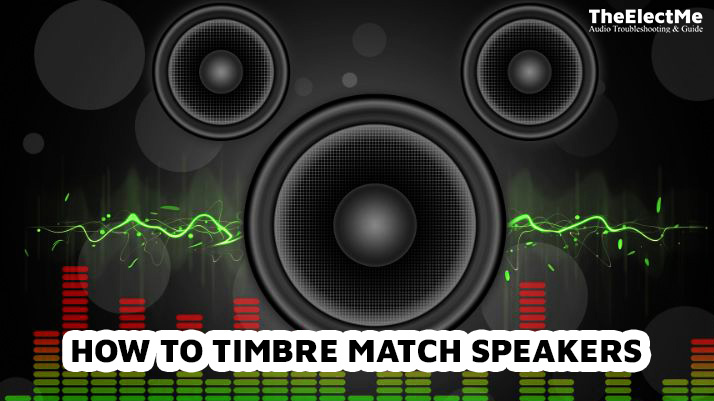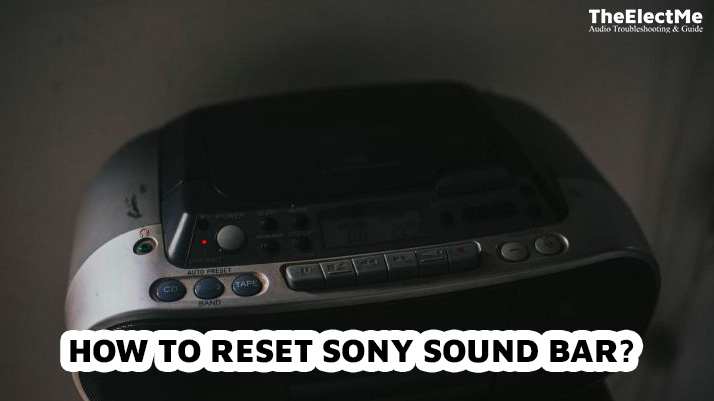Headphones are used for listening to music podcasts and even for taking calls. But a question often arises – are headphones bad for your brain? It’s an important query, one that deserves a thorough look.
Many people worry about the possible negative effects of regular headphone use. There’s talk about potential damage due to electromagnetic waves, hearing loss, and even brain cancer. Are these concerns valid or just myths?
By the end of it, you’ll have a clear understanding of the impact of headphones on your brain and how to use them safely. So, let’s get started and find out – are headphones bad for your brain?

Debunking Myths: Are Headphones Bad For Your Brain?
No, headphones are not inherently bad for your brain. A moderation use of headphones typically does not negatively impact your brain health.
Research shows there’s no direct correlation between headphone use and brain cancer. A study titled “Mobile phones and brain tumors–a public health concern” discussed the risks associated with mobile phone use but did not point toward headphones as a risk factor.
Another study titled “Estimating the risk of brain tumors from cellphone use: Published case–control studies” found no significant risk of brain tumors from headset use.
Another research highlighted that a headset connected directly to the cell phone can reduce the risk of brain tumors associated with long-term mobile phone use. A study on the effect of headsets and earphones on reducing electromagnetic radiation also supports this claim.
While these studies focus on mobile phone use, it’s important to note that headphones are often used with mobile phones. However, headphones still cause health concerns, which will be discussed in the following section.
Related: How To Wear Headphones With Long Hair And Look Stylish
What Are The Potential Negative Effects Of Headphones On Your Brain?
When you put on headphones for long periods, the sound waves enter your ears. Here are some potential impacts of prolonged headphone use on your brain.

1. Cognitive Overload and Sleep Problems
Excessive headphone use has been linked to cognitive overload and sleep problems. Cognitive overload occurs when the brain is overwhelmed with too much information or stimuli, making it difficult to process effectively. Multitasking with headphones can lead to weaker focus and concentration.
Listening to music while working or studying is a way to increase productivity. But at the same time, it can lead to mental disruption.
Moreover, using headphones at night can disrupt sleep. Even if soothing, the noise can interfere with the natural sleep cycle and prevent deep, restful sleep.
Additionally, the light emitted by electronic devices used with headphones can disrupt sleep. This occurs by tricking the brain into perceiving it as daytime and affecting melatonin production, a hormone that regulates sleep.
2. Noise-Induced Hearing Loss (NIHL)
Noise-Induced Hearing Loss, or NIHL, is a serious health concern. It occurs when loud sounds damage the sensitive structures in our inner ears. This damage can occur from a single loud sound or prolonged exposure to loud sounds.
One of the common culprits blamed for NIHL is using headphones and earbuds. Listening to music at high volumes through these devices exposes your ears to sound intensity comparable to a live concert. Over time, this can lead to NIHL, affecting one or both ears.
The symptoms of NIHL might not be noticeable immediately but can worsen over time. They include difficulty hearing high frequencies, tinnitus (ringing in the ears), and even total hearing loss.
Related: How To Charge Wireless Headphones?

3. Headaches and Migraines
Headaches and migraines are two different conditions that can cause significant pain and discomfort. A headache is generally a pain anywhere in the head or neck region.
Migraines are recurrent headaches with throbbing and pulsating pain, typically on one side of the head. They are more than just a headache – they’re a neurological disease.
Headphones and earbuds can contribute to headaches or migraines. Constant pressure on the ears, especially when wearing over-ear headphones, can cause pain in the head and neck. Listening to loud music with headphones for long periods can trigger migraines in susceptible individuals.
4. Dizziness
Prolonged headphone use can also cause dizziness. Dizziness is a feeling of lightheadedness or unsteadiness that can lead to fainting.
Like headaches and migraines, over-ear headphones exert pressure on the head for extended periods. This can result in feeling dizzy and off-balance, especially when combined with loud music.
5. Mental Fatigue and Stress from Long-Term Headphone Use
Long-term headphone use can lead to mental fatigue and stress. Constant use of headphones can cause overstimulation and exhaustion, leading to mental fatigue. This can result in difficulty concentrating, feeling irritable, and experiencing physical symptoms like headaches.
Additionally, using headphones for long periods can also contribute to stress. Constant noise exposure and added pressure can cause anxiety and tension. Taking breaks and limiting headphone hours can help reduce mental fatigue and stress.
Related: Can Headphones Cause Hair Loss?

How To Use Headphones Safely?
Despite the potential negative effects, headphones can be used safely by following these tips:
- Limit usage time: Avoid using headphones for more than an hour. Take breaks in between to give your ears a rest.
- Use noise-canceling headphones: These can help reduce the need for higher volume.
- Listen at a safe volume: Keep your headphone’s volume below 60% of its maximum capacity to reduce the risk of hearing damage.
- Practice the “60/60 rule”: As a general rule, listen at 60% volume for no more than 60 minutes daily.
- Use over-ear headphones: These distribute weight evenly and prevent too much pressure on the ears.
- Avoid sleeping with headphones on: This can disrupt sleep and affect overall health.
- Get regular hearing check-ups: Regular hearing tests can help detect any early signs of hearing damage and prevent further damage.
- Try alternative listening methods: Take breaks from using headphones and opt for speakers or earbuds instead.
Responsible headphone use is crucial to protect your brain and overall health.
Final Thoughts – Are Headphones Bad For Your Brain?
Are headphones bad for your brain? No moderation use of headphones cannot prove harmful to your brain. Negative effects can arise when they’re used excessively and irresponsibly.
Excessive loud headphone use can lead to cognitive overload, sleep problems, NIHL, headaches, dizziness, mental fatigue, and stress. It is best to use headphones in moderation and take breaks. When using them, follow safe listening practices and heed any warning signs of hearing damage.
A safe listening experience protects our ears and brains, promoting overall well-being and productivity. So, use headphones responsibly and listen to the beat of your favorite music without any harm.



